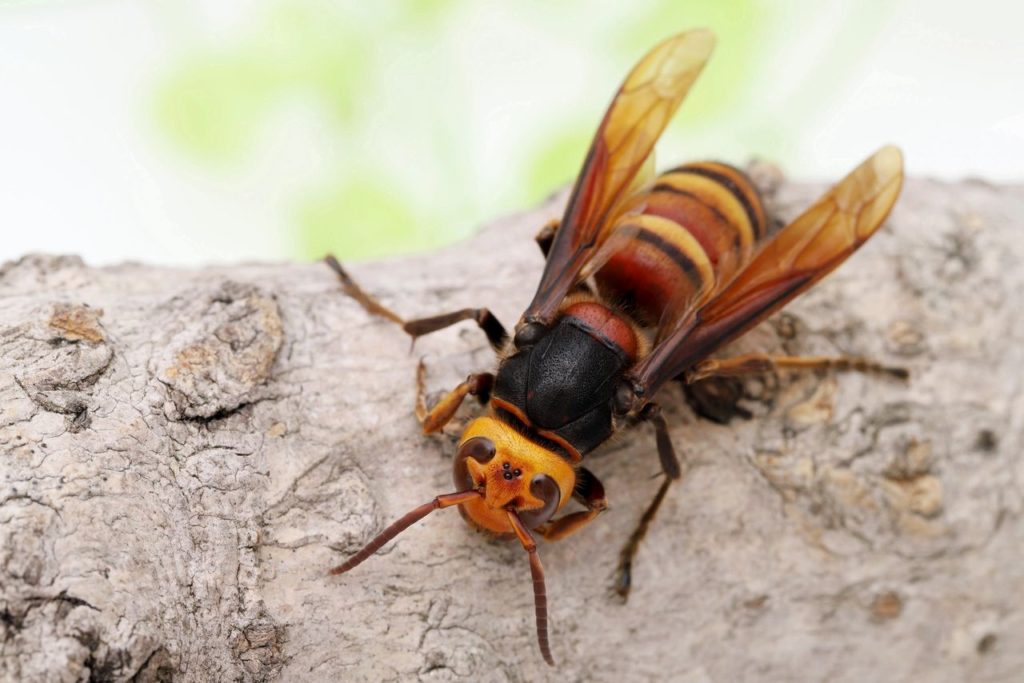Facts About the Asian Giant Hornet

FACTS
- Asian Giant Hornets are large and have noticeably large orange heads and black eyes. Worker hornets are approximately 3.5 cm in length and queens can be up to 4-5 cm in length with a wingspan of 4-7 cm.
- They only nest in the ground, unlike other species of wasps or bees that build nests and hives in trees and/or buildings.
- These hornets are not interested in humans, pets or large animals. They hunt insects for food. The only time hornets will attack is when their nest is disturbed.
HONEY BEE KILLERS
This killer hornet can inflict devastation to honey bee colonies, highlighting the importance of bees as pollinators. With several hornets capable of annihilating 30,000 bees within hours. There are three phases to an Asian Giant Hornet attack to a honey bee colony.
First is the hunting phase where individual hornets will capture bees at the entrance of the colony and then cut off their heads. They then return to their nest with the bee head to feed their young.
In the second phase, the hornets will mark the colony with a pheromone to recruit their sisters to the site. Then hundreds of hornets will descend upon the colony, killing all of the workers by ripping their heads off. Then, dumping their bodies onto the ground below and returning to their nest with their prey.
Once the bee hive is dead, the hornets enter the occupation phase. Hornets take over the hive, collect pupae and larvae and return to their own nest to feed their young. The hornets will guard the hive entrance as if it were their own nest. You know this is an Asian Giant Hornet attack due to the “decapitated” or “ripped apart” bees. If you find a pile of intact dead bees, their deaths could be the result of pesticides or starvation.
In Asia, the Asian Honey Bees have a defense mechanism whereby they grab an invading hornet, pile around it and raise their thoracic temperatures to the lethal temperature that will kill the hornet. Unfortunately, North American honey bees do not have this behavior which makes them undeniably vulnerable to this species of hornets.
IF YOU ARE STUNG
- lace an ice cube/pack or cold compress on the location to reduce inflammation and the spread of venom. Read our article here for more information about wasp stings,
- Don’t rub the site, it will cause the venom to spread into the surrounding tissue
- If you are stung multiple times or have symptoms of toxic or allergic reaction, seek medical attention immediately
If you come across an insect you think might be an Asian Giant Hornet, take a photo and contact the BC Invasive Species Council at info@bcinvasives.ca or call them on 1-888-933-3722.
You can give us a call if you find you have a hornet or wasp problem at your home. Whether you’re in West Vancouver, North Vancouver, Vancouver, Burnaby & New West, Coquitlam & Tri-Cities, or Richmond, our expert team is ready to help you protect your home and family from these unwelcome invaders. Contact us today to schedule an inspection or discuss your pest control needs.”
Related article:
